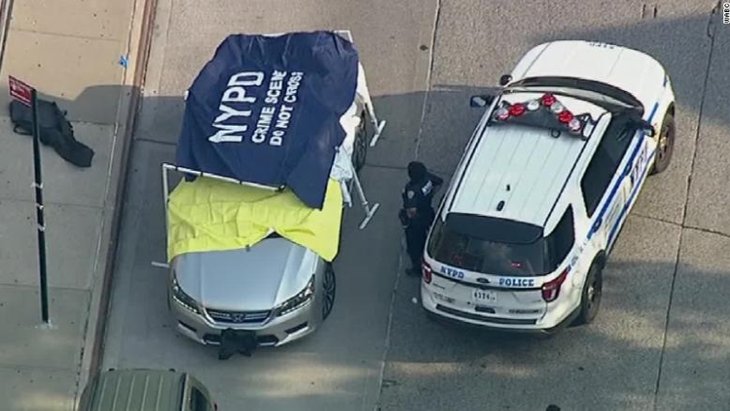 Vampire Weekend's Surprising Jewish Stories
Vampire Weekend's Surprising Jewish Stories


5 min read
The dangers of living on auto-pilot.
It is a heartbreaking story of a tragedy beyond comprehension.
Luna and Phoenix Rodriguez, boy and girl twins, just recently celebrated their first birthday. On Friday their father drove to work at the Bronx VA Hospital with his babies in back of the car, intending to drop them off for child care. Somehow he forgot, parked in his usual spot with the infants inside the vehicle, and left the babies until he returned eight hours later.
He spotted them foaming at the mouth, no longer breathing.
For a child left in a car unattended, heatstroke kills – and very rapidly. Temperatures inside can reach as high as 130 degrees, even when external temperatures are in the 70s or 80s, as direct sunlight heats objects inside the car.
The Rodriguez twins are not the first victims of this form of parental forgetfulness. The number of child hot car deaths in the U.S. for 2019 is currently 21. On average, 38 children under the age of 15 die each year from heatstroke after being left in a vehicle. Nearly every state has experienced at least one death since 1998, and in 2018, a record number of 52 children tragically died from this avoidable death. In fact there is even a name now for this horrible event: Forgotten Baby Syndrome (FBS).
How can this possibly happen? We wonder, who are these parents? Were they intoxicated? Uncaring and unloving? How could they possibly have forgotten the presence of their own child for whom they are the primary caretakers?
Remarkably, studies have shown that the great majority of families who experience this tragedy are loving caregivers, devoted to raising children and devastated by these accidents. By all accounts Juan Rodriguez, a disabled Iraq war veteran and father of the twins, was a doting dad who just weeks before set up a bouncy castle in the yard for the twins' first birthday party and dressed them in their latest cute outfits.
How then could he just have “forgotten”?
Dr. David Diamond, a professor of psychology, molecular pharmacology, and physiology at the University of South Florida, Tampa, spends time researching the neurobiology of FBS. He explains that every day we perform tasks that become routine. They involve little conscious thought and they are governed by a part of the brain called the motor cortex. It’s what allows us to drive the same route every day without paying attention or even remembering what was seen. We just keep doing the same thing over and over again without thinking. Our brain tells us to go on autopilot and it will take care of everything for us.
There is another part of the brain however that is responsible for making important decisions. It is the cognitive portion that has imprinted on it new information that requires attention and alertness. It tells the motor memory that we can’t go straight home like we do every day because we have to make a stop to pick up the laundry. It is the hippocampus that overrules the motor memory; it tells us there is something more important than simple habit and repetition. It demands that we snap out of our fog of reflex actions and reflect on unique and different responsibilities.
Forgetting isn’t identical with not caring. It can happen to anyone - at least anyone who puts their life on autopilot even when it involves a matter of life or death.
That's why it's recommended to make the following simple acts as part of your routine in order to prevent FBS:
Keep a stuffed animal in the car. When you put your child in the car seat, put the stuffed animal in the passenger’s seat.
Always check the front and back seat before you leave your vehicle.
Make it a habit to open the back door every time you park.
Leave the diaper bag in the front passenger’s seat. Diaper bags and babies go hand in hand. Its presence should remind you that your baby is in the backseat.
Have your childcare provider call you if the baby has not been dropped off.
Avoid phone calls. A recurring narrative of forgotten baby syndrome is a parent whose attention is focused on a phone call or a text.
There are also a number of technological solutions that serve as warnings, reminding you that you have a child in the car.
In the aftermath of this tragedy perhaps the best thing we can do is to fulfill the Torah commandment to "choose life." We cannot bring back the twins -- but we can use the consequences of a horrific mistake to serve as a powerful reminder of the need to live life with careful attention to all the things that really matter and to learn the needed lessons which will hopefully prevent their recurrence.
